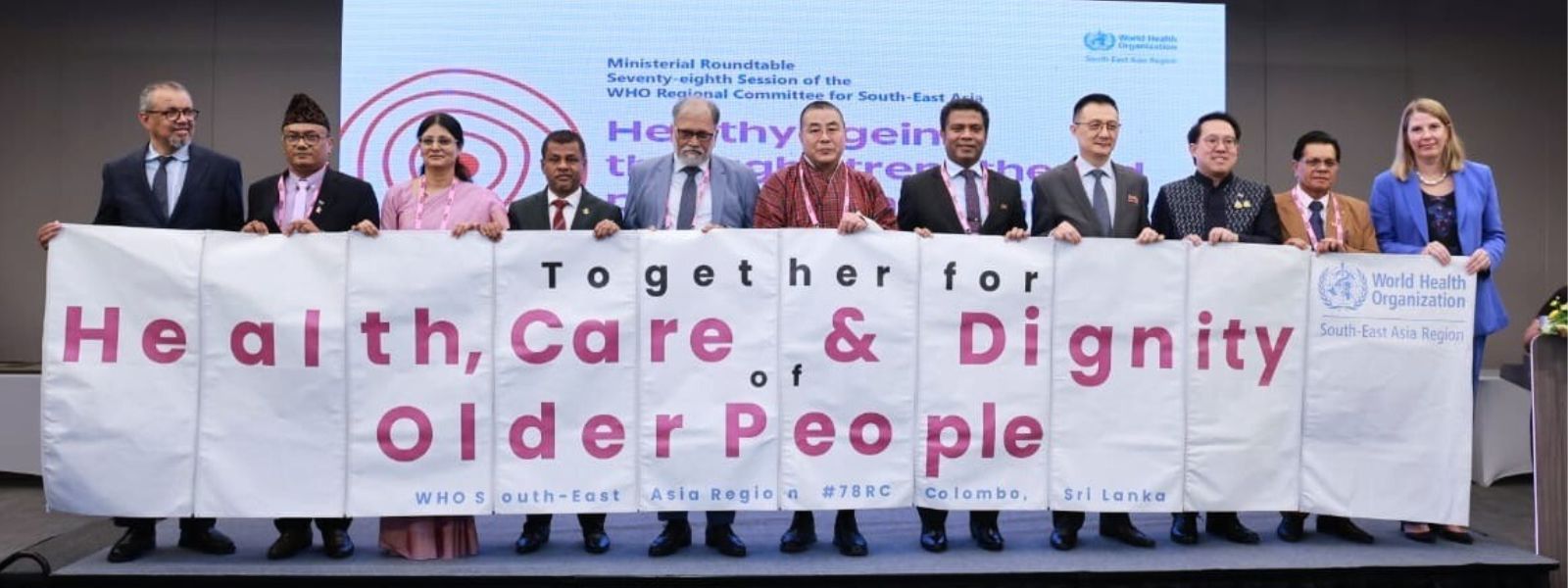.webp)

Colombo Declaration Champions Elderly Well-being
COLOMBO (News 1st); Member States of the WHO South-East Asia Region have unanimously adopted the Colombo Declaration on Healthy Ageing through Strengthened Primary Health Care.
The declaration was endorsed during the 78th Regional Committee Session held in Colombo, with the participation of health ministers, senior officials, and global health leaders.
The declaration comes at a critical time, as the population aged 60 and above in the region is projected to nearly double from 11.3% in 2024 to 20.9% by 2050.
“Older people, when in good health and with functional ability, are vital assets to families, communities, and economies,” said Dr. Catharina Boehme, Officer-in-Charge for WHO South-East Asia. “Primary health care is the most inclusive, effective, and efficient pathway to ensure they live long, healthy, and meaningful lives.”
The Colombo Declaration calls for embedding healthy ageing into national policies and health systems, ensuring accessible, equitable, integrated, and age-responsive services across the continuum of care—from health promotion and disease prevention to rehabilitation, long-term care, and palliative care.
Aligned with the Regional Strategy for Healthy Ageing 2024–2030, the declaration outlines four priority areas:
Combatting ageism
Creating enabling environments
Delivering integrated, person-centred care
Ensuring access to long-term care
It also emphasizes the need to strengthen the health and care workforce, including building geriatric and gender-sensitive competencies, supporting caregivers, and enabling multidisciplinary, community-based teams.
To ensure sustainability, the declaration urges adequate resource allocation, including innovative financing models, public-private partnerships, and cross-ministerial cost-sharing mechanisms to support universal health coverage and financial protection for older persons.
The declaration also calls for rights-based, person-centred, and gender-sensitive care, improved data systems to monitor and recalibrate programs, and the use of digital health innovations to enhance access and quality of care.
Other Articles
Featured News





.png )
-811619_550x300.jpg)
-811613_550x300.jpg)
-811607_550x300.jpg)
-811601_550x300.jpg)
-811589_550x300.jpg)
-811583_550x300.jpg)




-810262_550x300.jpg)
-809496_550x300.jpg)











.webp)






